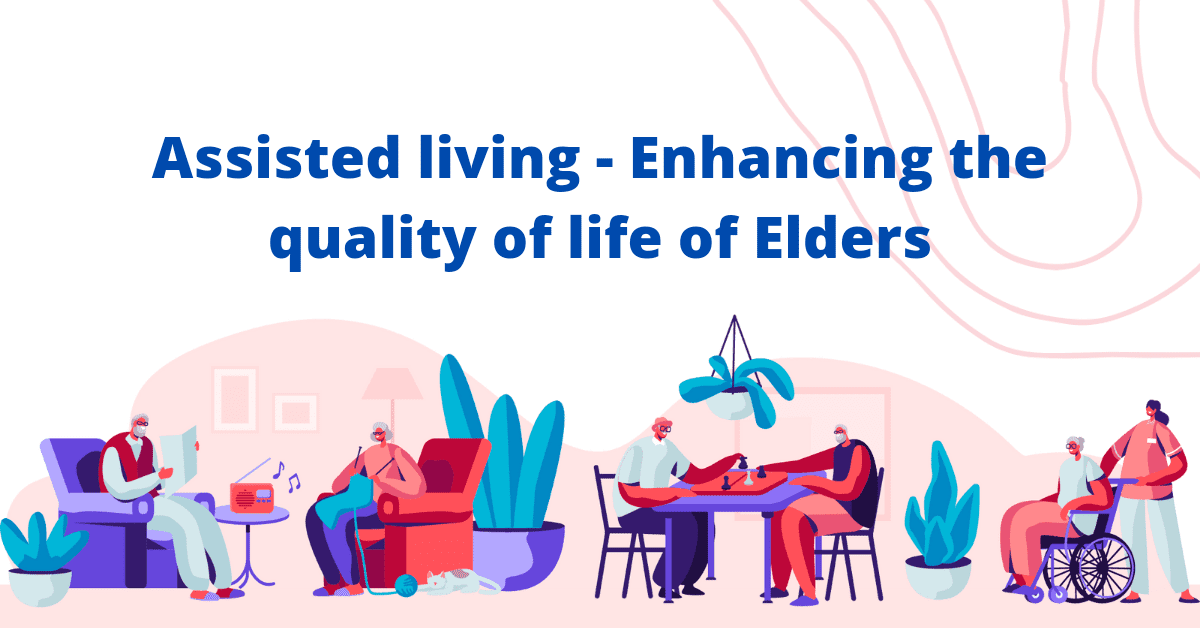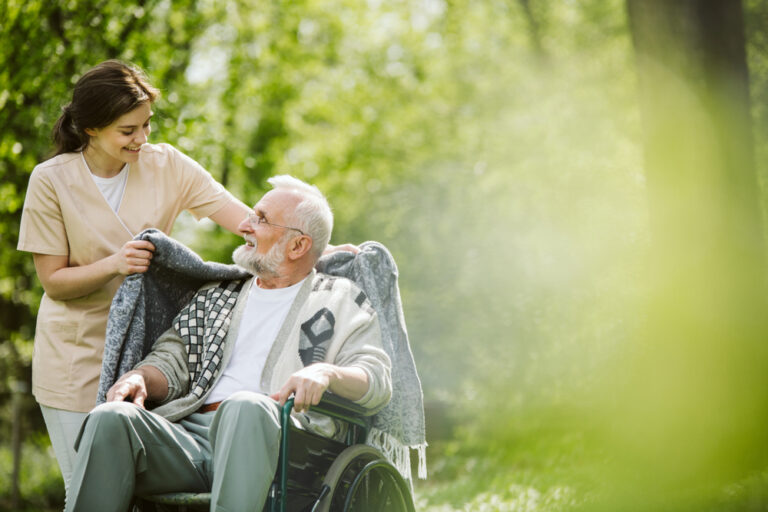Assisted living services may improve seniors’ quality of life in various ways, from social events to medication management. Residents are provided with safety, sociability, and a wide range of amenities and support to assure their pleasure and comfort. Families may relax knowing that their loved ones are in good hands.
Seniors who live in assisted living communities can maintain their independence. Almost half of the seniors aged 65 and up require daily assistance with getting dressed or going to the market. Assisted living facilities can aid in this situation.
Assisted living allows your loved ones to continue living their desired life. It may be difficult for your loved one to transition to assisted living, but the professionals at an assisted living complex can provide them with the care and attention they require. Seniors who move into assisted living have a 70% higher chance of having an excellent quality of life.
We have highlighted some of the main significant areas in which Assisted Living Services have improved their quality of life:
- An estimated 15% of people aged 75 and up require daily assistance with bathing, dressing, and toileting
- People of all ages may rely on family members or caregivers to help them with these ADLs and other needs such as food shopping, bill payment, and emotional support.
- An assisted living Service can relieve the stress on family members while giving the resident the continued support they require with daily assistance from our side.
- Assisted living, in any event, can support your loved one in continuing to live a normal life.
Social functions and community connections
- Our social circles tend to narrow as we get older, and we have fewer opportunities to mingle. Assisted Living Services offer a variety of possibilities for social interaction and isolation prevention.
- Loneliness has been shown to impact one's health negatively; thus, elders should participate in social activities.
- Researchers at the University of California, San Francisco, discovered that lonely older people had a 59 percent higher chance of mental impairment and a 45 percent higher risk of death.
- Other health hazards may be influenced by socialization. Lower interleukin-6 levels have been linked to a sense of social well-being. Alzheimer's disease, arthritis, and cardiovascular disease are linked to interleukin-6
- Assisted living services provide a safe environment for elders to form new friendships through activities and events.
- Friends and relatives are welcome to visit your loved ones even if they are in assisted living. Visits from family members are always welcome.
Opportunities for recreation
- Isolation and despair in seniors can exacerbate health problems and induce social anxiety. Assisted living services assist customers in locating the most cost-effective and suitable senior living options.
- Assisted Living Services gives residents easy access to a wide range of organized activities, allowing them to keep up with old friends, make new relationships, and try new things. Activities can range from planned outings and lunches to regular game nights or community movies, and they can all contribute to long-term quality of life elements.
- Assisted Living services can assist your loved ones in maintaining their mental and physical abilities. Your loved one will be eligible to participate in exercise classes and other enjoyable fitness activities, which will allow them to maintain their mobility, strengthen their muscles, and improve their balance.
- Residents in assisted living can also participate in activities and events. Craft days, a reading club, educational seminars, or guest lecturers may be available at your loved one's assisted care community.
Assist with medication management.
- In most Assisted Living Services, staff members assist residents in managing their prescriptions.
- The community will work with the resident's preferred pharmacy, whether a mail order service or a local pharmacy, to relieve the burden on the individual.
- They may also offer continuing education sessions and medication audits to ensure that residents can manage their prescriptions on their own.
- Our bodies lose some of their ability to absorb nutrients as we age, and our metabolism slows. To absorb the same nutrition as younger people, seniors require more protein and nutrients in their meals.
- Residents of an assisted living home are fed three healthy meals every day. Between meals, healthy snacks are also available.
Cultural and educational programs
- Cultural and academic events, such as lectures on various topics, are offered by many Assisted Living Services. They might form a partnership with local colleges to bring in professors to speak on various subjects.
- Residents of many assisted living residences are also allowed to give speeches about their areas of expertise and life experiences.
Provide a secure living environment
- While falls are common among seniors and can result in injuries ranging from a slight inconvenience to death, research suggests that they can avoid in the majority of cases.
- Our members are immediately available to help seniors with falls and provide the support they would be hesitant to ask for in other living circumstances.
Transportation
- While many people remain safe drivers, some require assistance with transportation to stores, doctors' appointments, and other locations as they age.
- Slower reaction times and eyesight problems have been linked to more serious fatal accidents among licensed drivers aged 65 and up.
- A senior community's transportation assistance can give family members peace of mind that their senior loved ones are safe at all times.
- Safe transportation to medical appointments, shopping, and planned activities can also help elders feel less reliant on their families for transportation.
Self-reliance
- Nobody wants to lose their freedom as they grow older. According to research, loss of independence is seen as more terrible than death by some elderly members of our society.
- While seniors who require just minor assistance may be hesitant to move to a skilled nursing facility, assisted living might allow them to maintain their independence.
- Assisted living services can help older persons maintain their dignity by allowing them to participate in activities of their choice and host family and friends.
Diets and Food habits
- Malnutrition is a severe problem among the elderly. Seniors' dietary needs may not be satisfied for three reasons, changing nutritional needs of the senior population, depression, and difficulties cooking.
- Inconsistent food or poor quality might weaken immune systems and cause other health problems.
- Assisted living services offer nutritious meals prepared by skilled staff and the convenience of not having to cook or go grocery shopping daily.
- Individuals with unique dietary needs can be accommodated on campus, such as low salt or a diabetes-friendly diet.
Mindfulness
- Assisted living and memory care alternatives can be huge considerations for clients and their families.
- Seniors are compelled to weigh competing goals such as their desire for freedom, assistance with everyday tasks, budgeting, and insurance.
- As we design individualized programs to address the requirements of each resident, we use an interdisciplinary team approach and seek family input.
Conclusion
- Happiness is a state of mind and a way of life. Having supportive relationships is perhaps the most crucial factor in happiness.
- Keeping our minds and bodies active has a positive impact on our overall health.
- Seniors will continue to grow and may even live longer lives if they continue to move and study.
- Your loved one will be able to make new friends, pursue new interests, and focus on their health when they move into an assisted living home.





